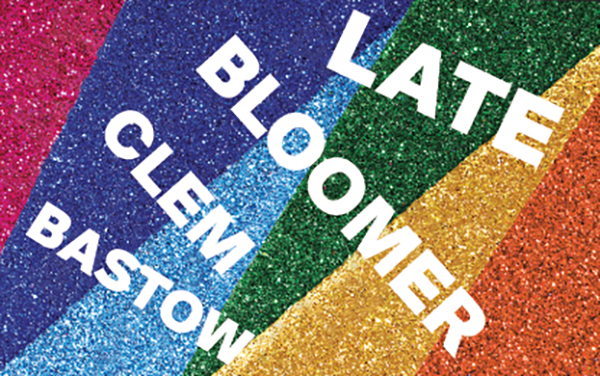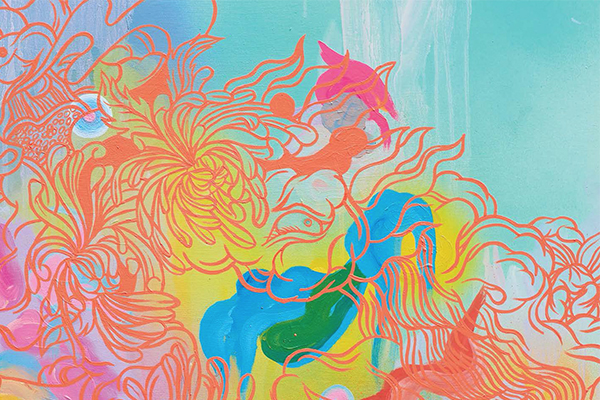Navigating the New World Of Writing
24 May 2022 | Youjia Song
As the Spark Prize opens for another exciting year, we’ve been thinking back to the Prize’s beginnings in 2020.
The winning submission, The Pursuit of Impossible Dreams, was submitted by Youjia Song. This captivating book proposal detailed the story of a woman’s defiant decision to have a second child at the start of China’s One Child Policy, told by the daughter who inherited her mother’s fearlessness. Needless to say, we were hooked and eager to see how this piece could develop.
More than a year later and after finally being able to attend her residency at RMIT’s McCraith House on the Mornington Peninsula, we asked Youjia to reflect on her submission, her Hardie Grant mentorship and her current writing journey.
Setting Myself to Write
I’m inside the McCraith 'Butterfly' House on the Mornington Peninsula. When I gaze up from my computer screen, I see the turquoise arc of Port Phillip Bay. The water is soft and calm and sail boats amble in the sun, and when the wind picks up, white ripples dimple the sea, and at sundown, Melbourne’s skyscrapers twinkle from across the bay.
On the kitchen counter just behind me is the visitor’s book. I open it and recognise that poets and writers have cast their spells here; Alison Whittaker, Emily Bitto, Tim Ross…
In the shadows of these talents, I feel a part of something extraordinary. Perhaps the alchemy in the house will sprinkle good fortune onto my pages.
I won the opportunity to gaze at this view and write in this house as part of the 2020 Spark Prize. After multiple lockdowns and border closures, I am finally here in 2022. The energy is potent and I set myself to write.
When I came to Australia as a newly arrived immigrant, I left behind the seven and a half years of memories and my extended family and the learning of my mother tongue. It wasn’t nearly as much as what my parents relinquished for a new life, but without knowing English, it took me a long time to feel at home.
I stretched my mind to make connections between the sounds of words and the letters that represented them. With no language to ask for the rules of sport, I was left on the sidelines. And just as I made a friend, we moved and I changed schools – five times in the first four years. During those fits and starts my struggle with English mirrored my efforts to fit in.
But in my search for belonging there were the contours of another story – that Mum broke all the rules to have me, that everyone got into trouble, that nobody my age in China had a sibling, and that I am the second child of China’s One Child Policy.
Before I was ready to return to that story, for the next twenty years, I searched for a stronger understanding of myself through journeys into nature and cultures far away. Upon my return from a wilderness trip in Kyrgyzstan three years ago, I asked my mother her story of me. She spoke and couldn’t stop and brought me letters and diaries.
"I keep writing because this moment is a gift; in encouragement, belief and opportunity."
At the end of 2019, I sketched out the story in a thousand words and submitted the piece to Memoria – an Australian non-fiction podcast about the moments in time that shape us. I was invited to record my story into a podcast for the following season.
It was my first attempt at writing narrative non-fiction and it was powerful for it allowed me to return to my origin and make sense of who I am. That initial opportunity gave me confidence to build on and expand the story, and so I added more tales Mum had shared.

We met via Zoom once a month during which Arwen workshopped my writing: reading with intention, structure, voice, exposition lumps, and anything I wanted to work on. She offered emotional support and cheered me on. Like the mountaineer who took me up my first 6000m mountain in the Andes and the biologist who showed me how to find snow leopard tracks in Siberia, Arwen gave me the confidence to write into the unknown and forge a path uniquely my own.
Sitting in McCraith House, I watch the blue in the ocean darken with the day, yet its translucence prevails. Its enduring light gleams of possibilities that helps me reflect and write. I keep writing because this moment is a gift; in encouragement, belief and opportunity.
The 2020 Spark Prize has offered me the support to navigate the new world of writing, and with that energy, I continue to write as often as I can, every day if possible, to build the pages that make the chapters that tells the story.



